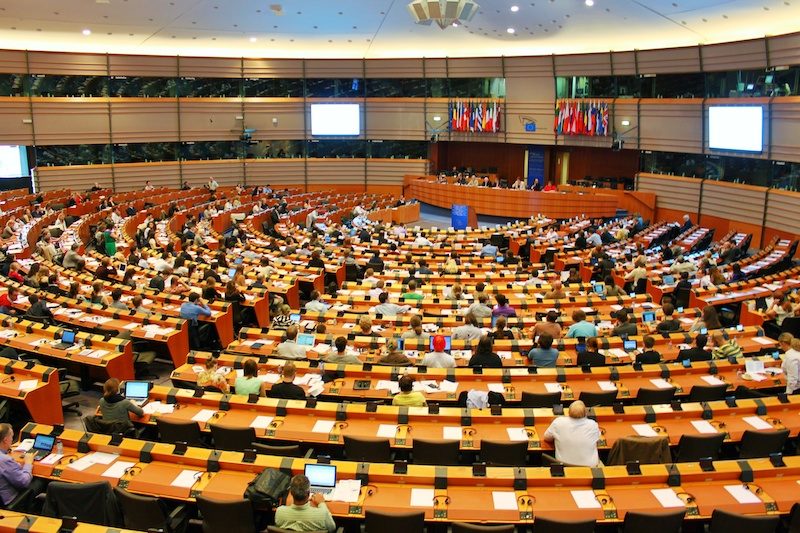Exclusive: European EPP group places amendment seeking a two-year delay to ‘burdensome’ EUDR environmental laws

European Parliament group EPP has sought a two-year delay for the EUDR regulations. pic: Shutterstock
European centre-right political group, EPP has moved to further extend the timeframe for introducing the much-anticipated EUDR environmental legislation, tabling a parliamentary amendment seeking a two-year extension to its original date at the end of this year, reports Neill Barston.
In the wake of considerable industrial and national government lobbying, the EU Commission put forward proposals for a 12-month implementation delay to the initiative, which compels companies to prove they are deforestation free.
While the move, which is expected to be adopted, has met with major concern from environmental groups including Mighty Earth, and confectionery companies such as Tony’s Chocolonely, it received backing within the European Parliament, with around 20 countries within the bloc stating they were unready to proceed with the legislation as it stands, and was originally formally agreed over 18 months ago.
However, the EPP, which is considered the largest group in the parliament, is now seeking to double the delayed start of the frameworks to enable a two years implementation phase beginning at the end of 2026 – stating that the law is ‘a bureaucratic monster’ in its present form, that provides notable burdens to European farmers, companies and international trading partners.
Furthermore, the group, which said it did in fact back the concept of the EUDR in a delayed formed, also set down a separate amendment proposal to exempt traders from the upcoming regulations – which has met with concern from industry observers, who feared the ‘watering down’ measures would have significant negative impact and make the legislation were to offer such industry ‘free passes.’
A number of key industry sources have contacted Confectionery Production to outline their concerns over delays to the legislation – with environmental campaigners explaining that cocoa supply chains are still losing large areas of forest to both legal and illegal sources of industrial activity, and without the new regulations being in place, further major forest loss will likely occure.
Moreover, as previously reported, an industry collective, the Cocoa Coalition, made up of major industry businesses including Ferrero, Mars, Mondelez International, Nestlé, Tony’s Chocolonely, has urged the EU not to permit any further legal amendments to the existing text of the legislation (beyond permitting a 12 month additional period for implementation), that had been set down 18 months ago
Christine Schneider MEP, the EPP Group’s lead negotiator, said: “The current Deforestation Law is a bureaucratic monster. If implemented, it risks hampering European farmers and businesses. That’s why the EPP Group has called for a delay, but postponement alone is not enough,”
“To reduce administrative burdens, the EPP Group proposes changes to the current legislation, making only the company placing the product on the market responsible for proving it is deforestation-free. “Don’t ask companies to prove it again and again and again throughout the whole supply chain,” Schneider emphasises.
Furthermore, the group said the law show not come into force until data platforms tracking product origins are fully operational and a risk classification system is in place. The EPP Group also wants to exempt countries without deforestation, and urged the European Parliament to accept its proposals that it claimed would cut red tape associated with the laws.
Human rights concerns
In response, the Human Rights Watch organisation has raised notable concerns about the move to further delay the legislation – which it highlighted also included moves to create a ‘no risk category’ which it believes would effectively create a loophole that could be exploited by traders to evade further scrutiny envisaged by the new legislation.
It also noted the fact that 50 businesses and organisations have raised fears over further extension of the planned timeline for EUDR, believing that it should be implemented quickly to ensure its intended goals of environmental protection are met.
“The anti-deforesting regulation is a landmark piece of legislation that required considerable study, negotiation, and compromise, and was adopted after an extensive impact assessment,” said Myrto Tilanaki, senior environmental advocate at Human Rights Watch. “Delaying its implementation would be terrible news for climate-critical forests as well as the human rights of workers and forest-dependent communities, and these additional amendments strike at the heart of its integrity; they are simply unacceptable.”



